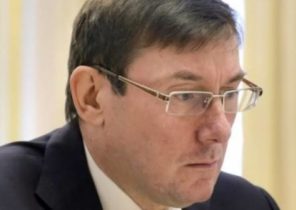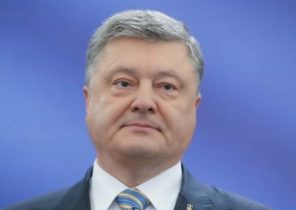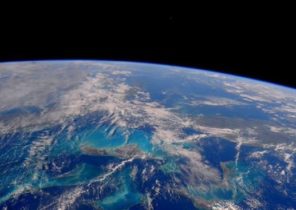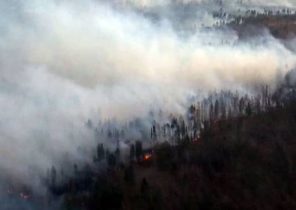LONDON — the Leaders of “Big twenty” it is urgent to come together to agree on broader and more coordinated global action to combat the crisis сovid-19. Although in many countries, the quarantine mode is now softened, the global number of new cases of infection сovid-19 per day recently reached its highest (so far) mark, while continuing to increase the destructive impact of the pandemic on the economy and in the developing world there are new epicenters of the pandemic.
We are experiencing a critical moment, because the poorest countries in Africa, Asia and Latin America are faced with an emergency situation in the economy and health care, which calls for immediate action. Need help also a diverse group of countries with medium income level. Together, these countries represent almost 70% of the world population; they account for about a third of world GDP.
In the coming months and years the needs of these countries will become only more acute. The expectations of the international labour organization, in the second quarter of 2020, the global number of hours worked will be 10.5% below pre-crisis levels, equivalent to a loss of more than 300 million jobs with full employment. For the first time in this century began to increase level of global poverty.
Moreover, the global recession could reverse three decades of the process of raising the standard of living and are estimated to push into poverty 420-580 million people worldwide. The world food programme warns that covid-19 will probably double the number of people suffering from acute hunger; this figure will reach 265 million people.
In addition, the pandemic has led to the emergence of the greatest in the recent history of emergencies in education: 1.7 billion children, more than 90% of their global total, stopped going to school because of the quarantine. In poor countries, many may never go back there. Millions of children who have no access to school food, began to starve, and the government, limited in means, were to cut aid allocated to education.
Global economic and social emergency situation will continue as long as we overcome the global emergency health. And for that she must be overcome in all countries of the world.
We welcome the pledges of funding totaling $8 billion, which was placed on a special virtual summit on may 4, for the development of vaccines, methods of diagnosis and medicines from covid-19. We urge governments and other donors to immediately provide this funding. However, we need to do a lot more.
Global coordination is particularly important in the development, mass production and equitable distribution of any vaccine that appears. Such a vaccine should be universal and freely available, so we encourage all countries “the Big twenty” to contribute to the replenishment of the Global Alliance for vaccines and immunization (Gavi) on the online conference on fundraising on June 4th.
Among other measures, it is necessary to increase the capacity of testing covid-19 and to apply them in a much larger scale. Closer international cooperation is necessary to increase the limited global supply of vital medical equipment and materials. Developing countries also need to assist in strengthening their health systems and social protection. Finally, the countries “the Big twenty” should respond to the call of the UN to protect refugees, internally displaced persons and other persons who are dependent on humanitarian aid.
Due to the unprecedented deterioration of the economic and budgetary situation in many developing countries already more than 100 countries appealed for help to the international monetary Fund. And probably their number will grow. But although the IMF stated that these countries need $2.5 trillion to overcome the crisis, yet provided only a small portion of this amount.
We welcome the good intentions underlying the action plan of “Big twenty” anti-covid-19, but world leaders have to do more.
First, debt relief 76 countries from the International development Association (IDA) to do radically more ambitious, extending it to service the debt to bilateral and private creditors by the end of 2021. In addition, multilateral creditors are required to demonstrate that they provide net new lending; otherwise, they should also mitigate the debt burden. And since private lenders time is running out for voluntary benefits for debt recovery, it is necessary to consider the possibility of a new, binding approach.
In the coming months, a dozen of developing countries (or even more) may face problems in servicing debt. IMF should start preparing for the dialogue between stakeholders.
Second, the group must agree on the need for support in the amount of $2.5 trillion will be provided. This requires that the IMF, the world Bank and regional development banks increased the ceiling for lending and grants over the next 18 months, the multilateral development banks should increase the portfolio of loans with $500 billion to $650-700 billion. These institutions will be able to act appropriately if given more resources and allow more ambitious use of their capital.
All this makes the absolute imperative of a new issue of special drawing rights (abbreviated SDR, is a global reserve asset IMF) and the transfer of already existing but unused SDRs, and SDR allocations to those countries who desperately need support. A new issue of SDRs will provide $600 billion immediately and over $1 trillion by 2022. “Big twenty” should organize political support for this measure and conduct the necessary technical work in order to implement the agreement immediately after its conclusion.
In the first phase of the crisis covid-19 emphasis was placed on securing liquidity, employment protection and extraordinary investments in health. Today, when authorities are trying to get the global economy back to pre-crisis levels of growth, becomes crucial expansion of fiscal and monetary coordination.
That is why the government should consider setting targets for global economic growth along with the national target inflation rates. Green investments should be part of the stimulus packages governments should give priority to those infrastructure projects that promote sustainable development, thereby helping to combat climate change.
In order for national governments to be able to obtain vital earnings, world leaders should agree on a coordinated strategy for the return of money lost in offshore tax. Countries should automatically exchange tax information; to lift the veil of secrecy surrounding the beneficial owners and trusts; to punish a country that refuses to abide by agreed rules.
Covid-19 — is a Wake-up call for the world, which must build a new and more effective multilateralism, prepared to solve problems of the XXI century. It is necessary to strengthen the global health architecture and Finance, and partially to change it to improve our readiness and capacity for the rapid and large-scale to deal with future crises. Further actions of the “Big twenty” to prevent the deepening of the current recession, pandemic and to mitigate its impact on the poorest population of the world will contribute to achieving this goal. We call on the leaders of “Big twenty” to support measures that need to be taken urgently.
Eric Berglof, former chief economist of the European Bank for reconstruction and development.
Gordon brown, former Prime Minister and the Chancellor of the exchequer of great Britain.
Helen Clark, former Prime Minister of New Zealand, is the former administrator of the UN development program.
Ngozi Okonjo-Iweala, former Finance Minister of Nigeria.







